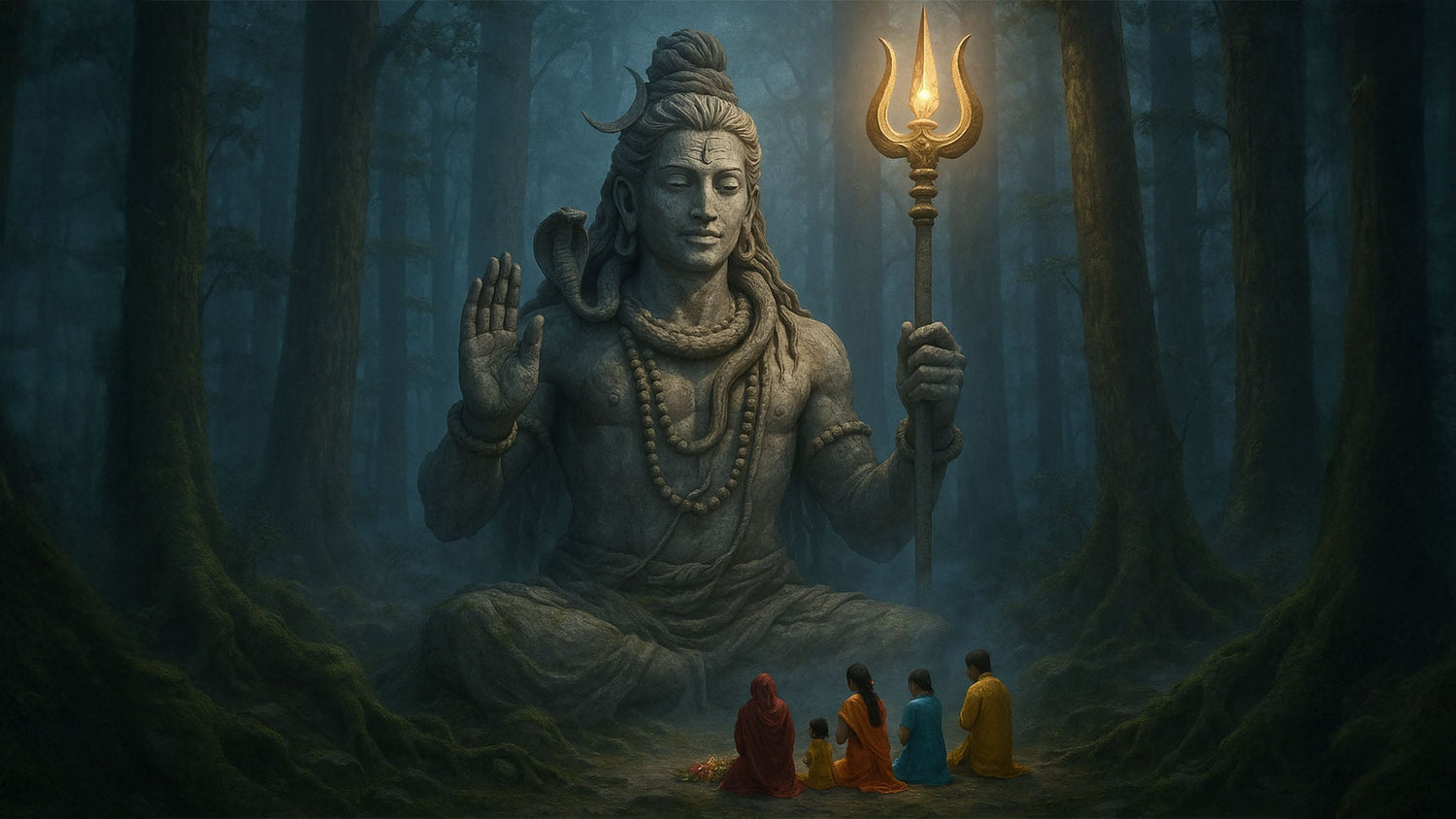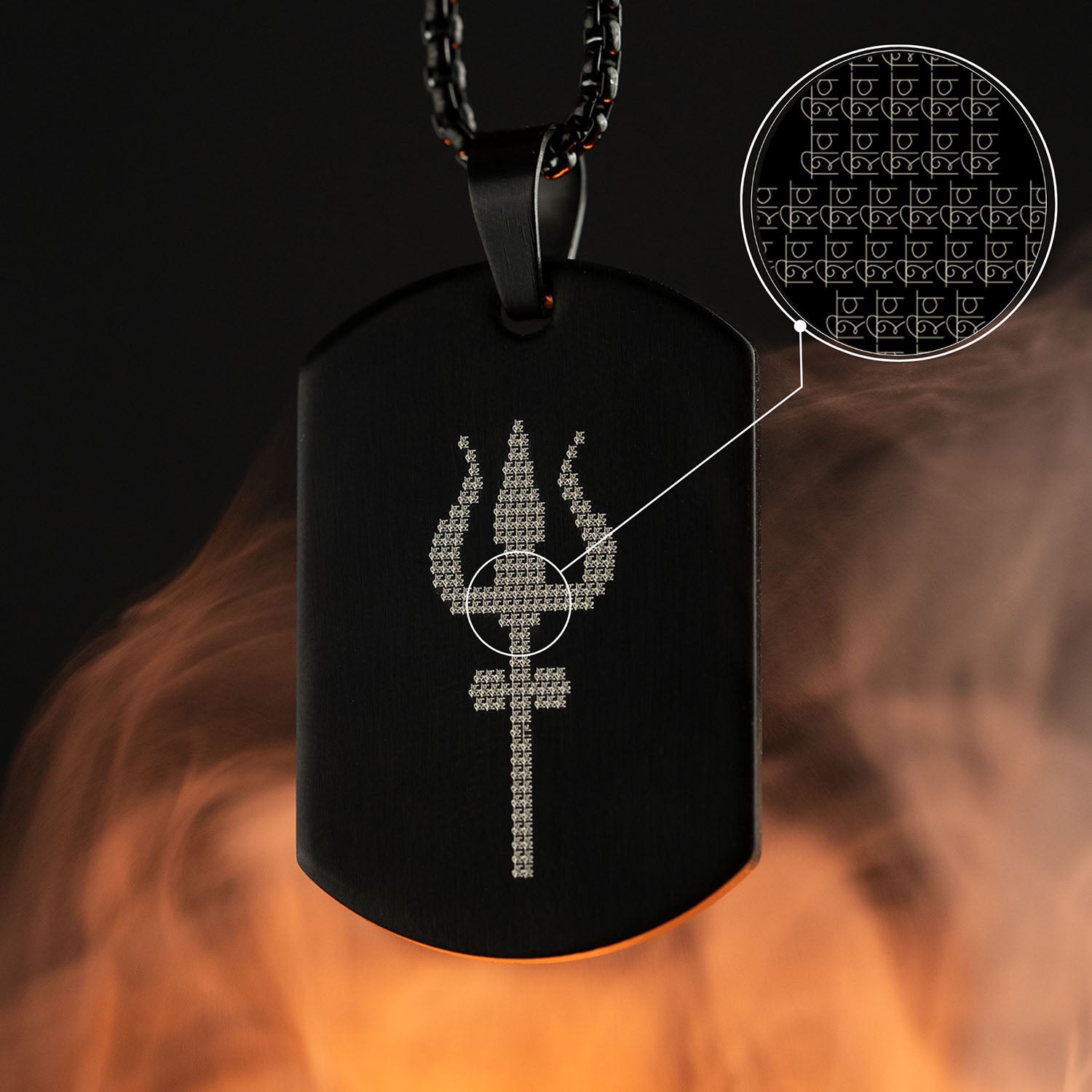Shravan: The Holiest Month to Worship Lord Shiva
Understanding the Sacred Traditions and Spiritual Significance of Sawan Maas
The sacred month of Shravan, also known as Sawan, holds unparalleled significance in Hindu spirituality as the most auspicious time for Lord Shiva worship. This holy period, typically spanning from July to August, transforms the spiritual landscape as millions of devotees immerse themselves in divine practices and profound devotion.
The Divine Origins of Shravan
Samudra Manthan and the Birth of Neelkanth
The sanctity of Shravan finds its roots in the mythological event of Samudra Manthan (churning of the ocean). When the Devas and Asuras churned the cosmic ocean to obtain amrita (nectar of immortality), the deadly poison Halahala emerged, threatening to destroy the universe.
Lord Shiva, in his infinite compassion, consumed this poison to save creation. Goddess Parvati held his throat to prevent the poison from descending further, turning Shiva's throat blue and earning him the name "Neelkanth." This cosmic event occurred during Shravan, making it eternally sacred for Shiva worship.
The Monsoon Connection
Shravan coincides with the monsoon season, symbolizing spiritual renewal and purification. The cooling rains are considered Lord Shiva's blessings, washing away sins and sorrows while the earth rejuvenates—mirroring the inner transformation devotees seek.
Rituals and Observances During Shravan
During Shravan, devotees follow deeply symbolic rituals to honor Lord Shiva. The most sacred are the Shravan Somvars(Mondays), where devotees fast and offer milk, honey, and bilva leaves during temple visits and Rudrabhishekceremonies. Fasting strengthens spiritual resolve and is often observed as nirjala (without water) or phalahar (fruits only).
The Kanwar Yatra is a powerful act of devotion, where pilgrims called Kanwariyas carry Ganga water across vast distances to Shiva temples, barefoot. Another key tradition is the Solah Somvar Vrat — sixteen consecutive Mondays of fasting, mainly observed for marital and spiritual blessings. This traditional fast spans sixteen consecutive Mondays, often beginning during Shravan. Devotees, particularly unmarried women, observe this fast for marriage and prosperity, including listening to the Solah Somvar Katha and offering dhatura, bilva leaves, and milk.
Sacred Mantras and Offerings
The Mahamrityunjaya Mantra
"OM Tryambakam Yajamahe Sugandhim Pushti-Vardhanam Urvarukamiva Bandhanan Mrityor Mukshiya Maamritat" This powerful mantra is believed to ward off death and disease while promoting health and longevity.
Shiva Panchakshara Mantra
The profound "Om Namah Shivaya" represents the five elements:
-
Na - Earth
-
Ma - Water
-
Shi - Fire
-
Va - Air
-
Ya - Space
Sacred Offerings and Their Meanings
-
Bilva Leaves: Represent the three gunas of nature and Shiva's three eyes
-
Milk and Honey: Symbolize purity and divine nectar
-
Dhatura: Represents surrendering all vices and Shiva's power to transform negativity
Regional Traditions Across India
North India
-
Bol Bam processions
-
Free meals for pilgrims
-
Devotional music events
South India
-
Nag Panchami observances
-
Special pujas at ancient temples
-
Ritual abhishekams with panchamrit
Western India
-
Temple fairs
-
Traditional folk celebrations
-
Community-led worship and rituals
The Science Behind Shravan Practices
Physiological Benefits
-
Detoxifies body
-
Enhances digestion
-
Improves immunity
-
Increases mental clarity
Psychological Impact
-
Reduces stress
-
Builds willpower
-
Strengthens community bonds
-
Provides spiritual purpose
Lessons of Shravan
-
Detachment and Surrender: Letting go of desires
-
Service and Compassion: Helping pilgrims and the needy
-
Transformation: Turning negativity into growth
Discover a Divine Companion for Your Journey
If you're a believer, Mesmerise’s sacred collection is worth exploring. From spiritually inspired adornments to devotional accessories, each piece is crafted to keep your connection to Lord Shiva alive — throughout the sacred month of Shravan and beyond.
Har Har Mahadev. May this Shravan bring you closer to the divine stillness within.













